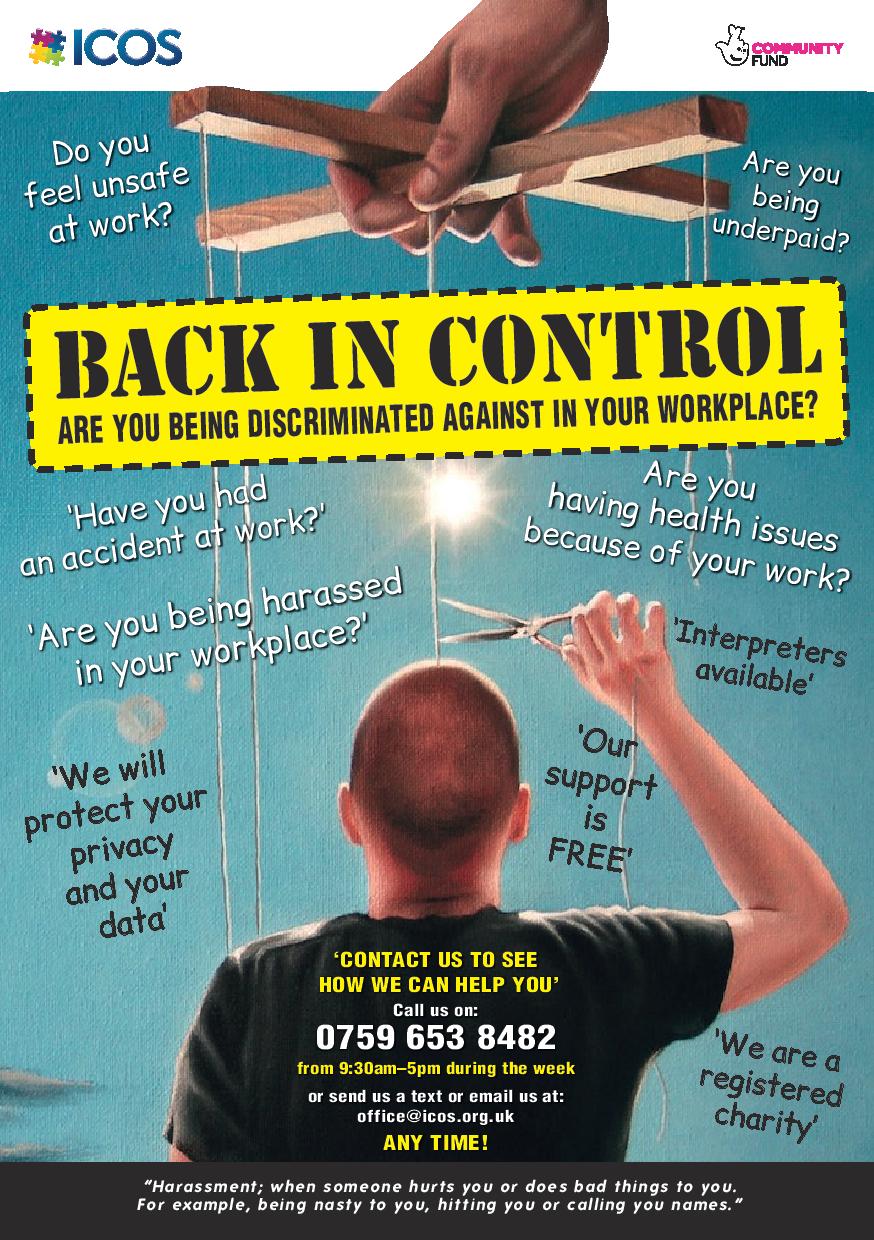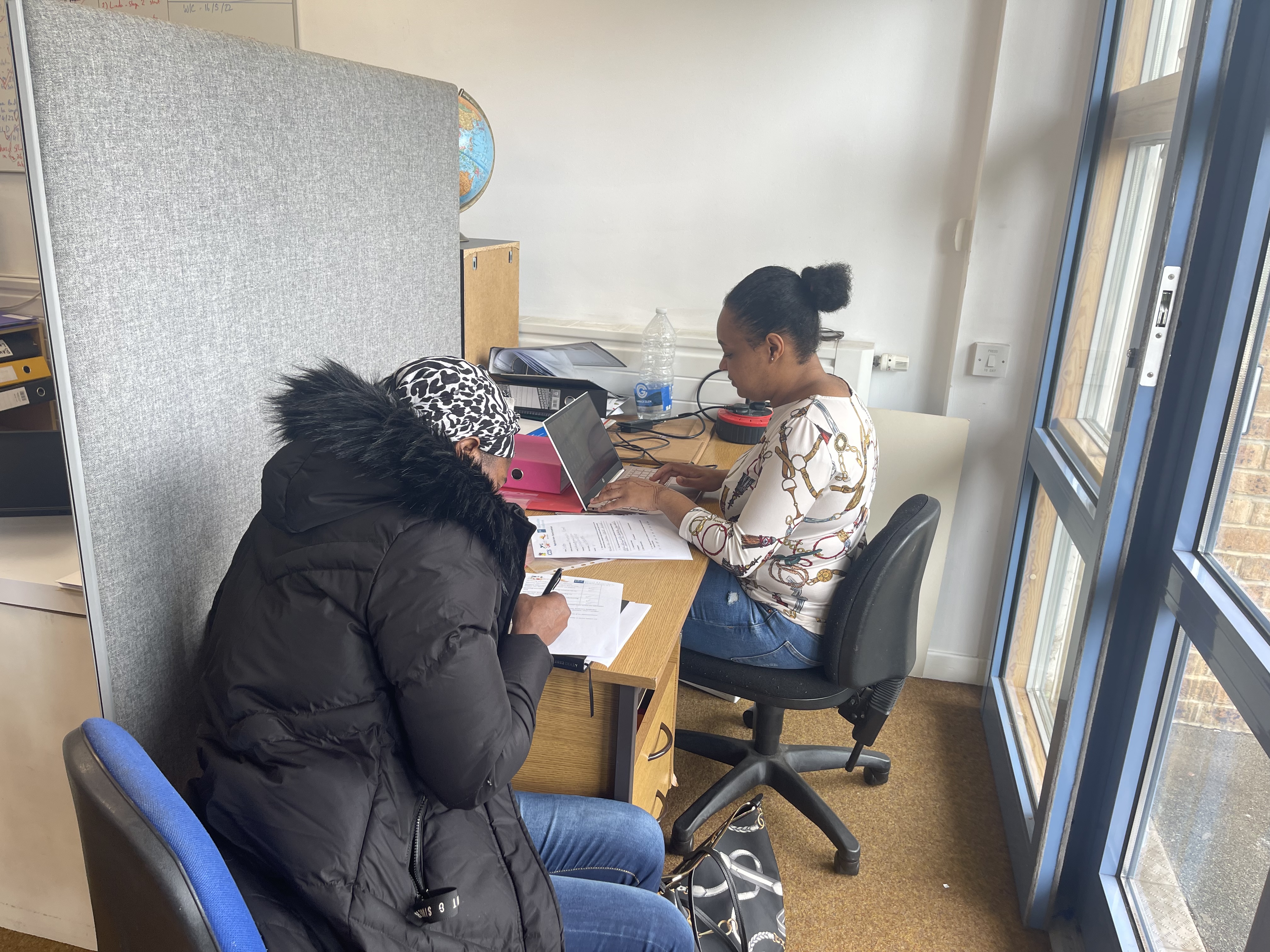International Community Organisation of Sunderland
Posted on 24 Nov 2022 Categories: Blog, Community Initiatives, Local initiatives
by Barry Knight
The fourth application for the Janette Kirton-Darling Memorial Prize continues the focus on race and identity, this time with an emphasis on migration.
The International Community Organisation of Sunderland (ICOS) was formed in 2009 to support new migrants, including those from EU countries to access services, understand their rights and integrate with the wider community.
Led by migrants for migrants
A central feature of the support is that ICOS is a diverse organisation, led by the kinds of people it supports. Most board members and all staff were born outside the UK and speak a variety of languages, including Polish, Arabic, Czech, Greek, Albanian and Ukrainian. This means that the service is well-equipped to understand the emotional needs of new migrants as well as the practical ones.
Services
 Since 2009, ICOS has directly supported between 300 and 400 people each year. Services include support with many different practical issues, such as applications for welfare benefits, assistance with housing, registering with schools and GP practices, support with employment, assistance to survivors of modern day slavery and support in dealing with hate crime.
Since 2009, ICOS has directly supported between 300 and 400 people each year. Services include support with many different practical issues, such as applications for welfare benefits, assistance with housing, registering with schools and GP practices, support with employment, assistance to survivors of modern day slavery and support in dealing with hate crime.
The service is attuned to the emotional needs of clients. Newcomers commonly feel vulnerable, especially if they lack English language skills. Brexit has made feelings worse as the end of free movement with the EU has led to a greater sense of isolation.
The service is sensitive to gender. In 2019, ICOS created the 1st ever Eastern European women’s group in the North East. This project involves approximately 100 women annually and provides individual support, e.g., for women fleeing domestic violence, but also get the women together and provides social activities, such as yoga, coffee mornings and mindfulness sessions.
As women taking part in the project grow in confidence, many decide to volunteer and help others. For example, one of the women has started the Mum’s Club for women and children.
Ukraine
The war in Ukraine has led to a group of migrants who are completely new to the UK. ICOS has provided a welcome for people who often struggle to understand the local systems and culture, while also dealing with trauma caused by the war.
ICOS currently supports 25 Ukrainian people providing practical support, which often includes emergency material support, such as food vouchers and free sim cards. It also includes combating exploitation by some of the hosts – including requests for money and doing odd jobs around the house. Examples of the work are given here.
Impact
ICOS invests in evaluation as a means of improving its work. There are two dimensions to this. First, there is a programme of self-evaluation using exit and feedback forms and an annual survey with people who have used the service. Second, an independent evaluation was conducted by Sunderland University.
Taking self-evaluation first, a telephone survey of service users was conducted and asked to rate the value of the service on a 10-point scale. Out of 21 surveyed, 18 gave the top score. Comments included:
‘ICOS have helped me so much in the past few months. I feel like I can always count on my project worker. I feel more comfortable knowing that there is someone there ready to help when I need it.’
‘Because of all this help I am now starting Accounting Level 1 at Gateshead College and can continue to look at accounting jobs when I finish this course and go back to being an accountant. My English has improved and now I’m ready to study functional skills.’
As a result of feedback from evaluations, ICOS started a sports project for Eastern European men in 2021. The men said that the pandemic had had a negative impact on their wellbeing and their repetitive work in the local factories called for a way of improving their physical fitness.
A more formal evaluation was conducted with the University of Sunderland between May 2021 and December 2021. Results uncovered widespread discrimination, racism and misogyny directed at Eastern European women in areas including employment and public services. The research also revealed the effectiveness of ICOS in delivering effective support services. A range of case studies are available including Helena’s story, Susan’s story, and Morgan’s story.
Using data from registration and evaluation forms for each project, which use a 1-10 scale to measure changes in regard to people’s financial situation, showed that 47 people had reported an improved financial situation. The Warwick-Edinburgh Mental Wellbeing Scale (WEMWBS) on registration and end of project forms to capture any changes in our clients’ wellbeing, 25 beneficiaries had reported an improved mental health and wellbeing due to the support received. Similar results were obtained for the Eastern European women’s group.

Facing outwards
While much of the work involves achieving tangible outcomes for individuals in need, ICOS works to improve society’s systems to ensure the inclusion of minorities.
There are two main dimensions to this. The first is to build bridges between different communities. While ICOS has a particularly strong relationship with the Eastern European community, it also organises intercultural meetings, getting together migrant people from different backgrounds, including asylum seekers and refugees, together with members of the local community. For example, an event was held in June 2022 to celebrate Refugee Week, bringing together refugees from a number of countries, including Libya, Syria, Sudan and Ukraine, other migrants and local residents of St Michael’s ward. With over 100 local people attending, this was an opportunity to get to know people from different cultures, socialise, sample international food, and take part in activities such as dancing and taster sessions of languages including Spanish, Ukrainian and Arabic.
The second is to influence people in power by engagement in partnership projects, including the Sunderland Black and Minority Ethnic Network (a local infrastructure organisation getting together, and supporting BME organisations), People’s Powerhouse Racial Justice Network and the Crown Prosecution’s Service Hate Crime Review Panel. An important initiative is the Racial Justice in Education Action Team organised by Tyne and Wear Citizens.
Since January 2022, together with two partners- Sunderland Bangladeshi International Centre and New Horizons Partnership (an organisation supporting the African community in Sunderland) – ICOS has been delivering a project which seeks to reduce unequal access to advice and information, including immigration advice for minoritized communities in Sunderland.
Written by Barry Knight, based on material produced by the International Community Organisation of Sunderland team.
Want to keep up-to-date with more articles like this? Sign up to our newsletter.
Posted on 24 Nov 2022 Categories: Blog, Community Initiatives, Local initiatives
